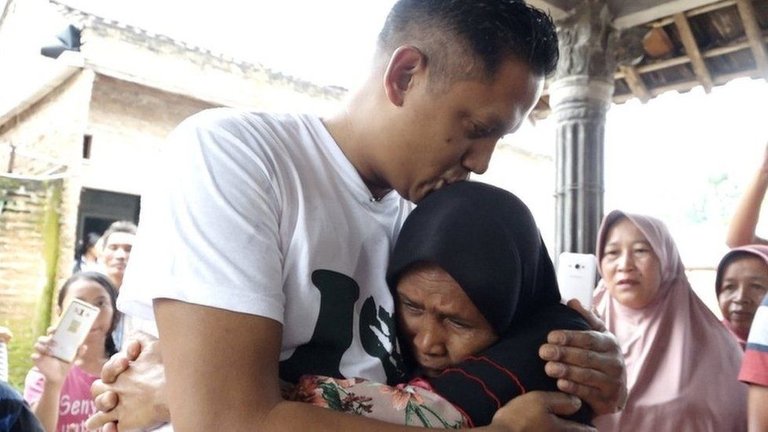
Andre Kuik could not help crying when he first met his mother after 40 years, he was adopted Dutch citizen since the age of five months and lived in the Land of the Windmills. Tired of traveling from the Netherlands to Pringsewu, Lampung, immediately disappeared when meeting with the mother, brother and sister for the first time. BBC Indonesia follows Andre's trip from Holland to Lampung.
For Andre Kuik and his partner, Marjolein Wissink, travel to Lampung in mid-April, is the third time. But unlike before, this time he must meet his biological mother, Kartini (65 years) and her siblings.
Her feelings are uncertain. After arriving in Jakarta after flying about 15 hours from the Netherlands, Andre could not sleep at night. The next day, he and Marjolein rushed to Lampung with a flight in the morning.
"Very happy, nervous and I really feel they are very close," said Andre when he arrived at Pringsewu, a few kilometers from his mother's house.
Anxiety was visible on Andre's face and his eyes looked into every corner of the car window as we got closer to his mother's house. From behind the car window, dozens of villagers seemed to be crowding and looking curious about the arrival of the 'lost child'.
Andre accelerated his pace as he saw the figure of a small, hooded woman standing in front of the house welcoming her.
The two hugged each other tightly and cried, the whole family and also his mother's neighbors surrounded them and wept.
"I feel this is not real," said Andre.
"Very happy, the missing child iso meet meneh (can meet again), iso behind meneh (can come back again), lanang can return (my son can return)," said Kartini in Indonesian and Java.
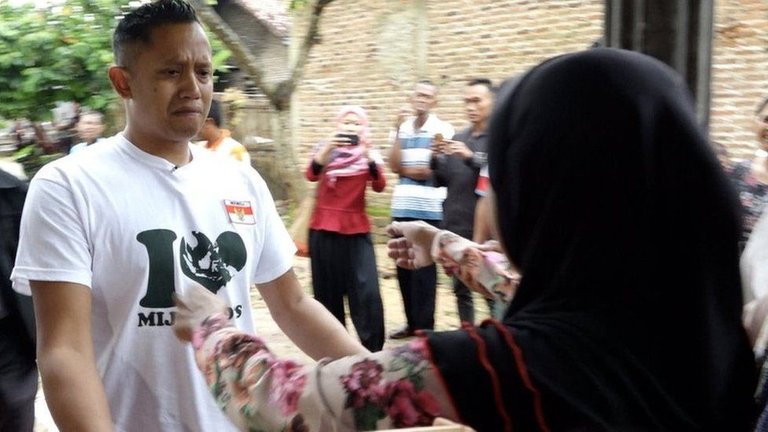
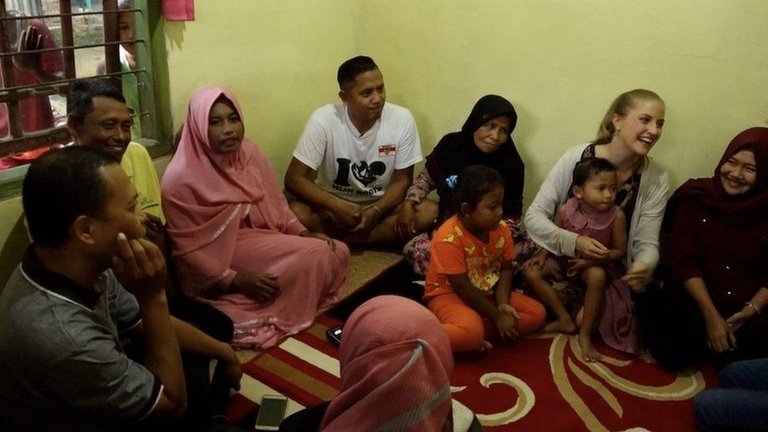
Separated from the age of four days
Kartini only had time to carry and nursed Andre at birth until the age of four days in February 1978. Andre's father, Theo Kohler, who is thought to have mixed blood of Java and Europe, urged Kartini to leave her third son at Panti Secanti hospital, Gisting Lampung .
Kartini had returned to the hospital with her two children Wely and Untung, but could not see her son.
"He said I could not meet, until at home I talked to my husband, angry mother how can not meet her son, husbands are silent," said Kartini.
After that he never heard the news of his baby who could not get a name. "Had wanted to find but where, I was sick to think missing children," said Kartini.
She keeps asking her husband about Andre's whereabouts, but never gets an answer. While pregnant with the fourth child, Theo left Kartini and was not heard until now.
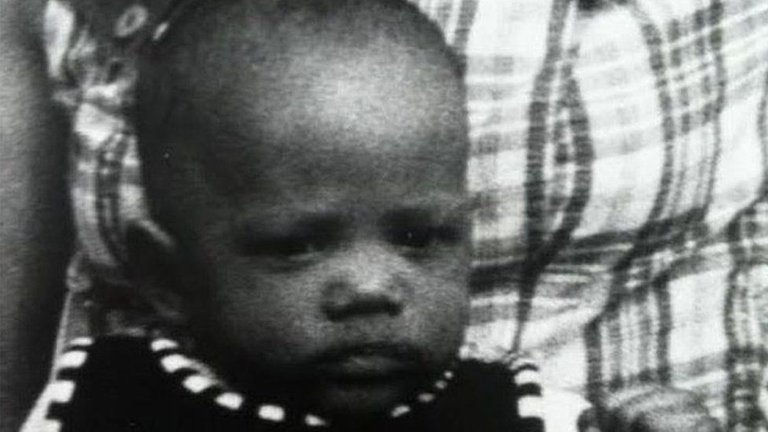
At the age of more than four months, Andre adopted Dutch citizen Jan Kuik and Mieke Kuik. In the adoption documents and notarial deeds, Andre's adoptive parents got their adopted children from the Pangkuan si Cilik Foundation in Jakarta led by Lies Darmadji on June 23, 1976.
It is unclear how Andre could be at the Foundation as a baby.
From Jakarta, Andre brought Kuik couples to Den Ham Dutch. There Andre was raised with a foster brother and sister from Thailand and adoptive sister from Indonesia.
"At home discussed openly about adoption issues, my parents always say if you want to go back to your homeland, we will support," explained Andre.
But as a child, Andre admitted never too concerned about his status as an adopted child.
"I'm always happy and do not mind about adoption, but I'm curious about where I come from, my face resembles who my father or mother is, whether I have brothers and sisters," Andre said.
Today Andre has learned that he has two older brothers Wely and Untung and a younger sister Dewi Agustina. One of his older siblings, Untung had died as a child because of illness.
"If her face resembles her father," Kartini said as she stared into the face of her third child. A smile spread across his face.
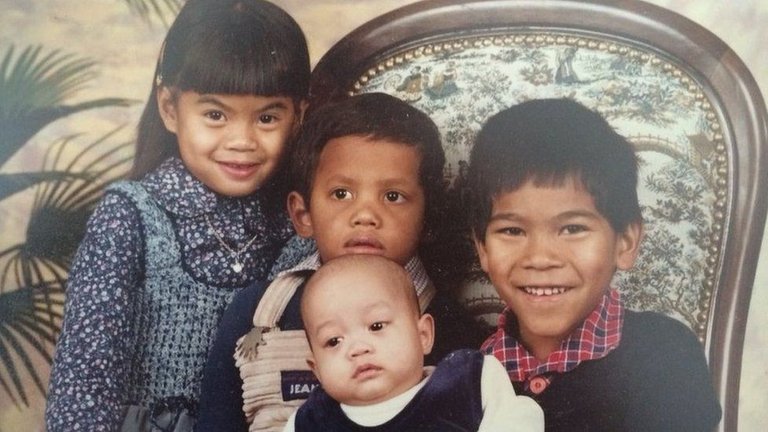
Andre admitted relieved to find out that Kartini has no intention of surrendering herself and has breastfed her for four days.
"I know he has no intention of handing me over," Andre said.
During a one-week visit, Andre wanted to know more about his family, through their food, habits and work, among others, to the fields and to see the making of bricks, which became the daily work of his brother and sister,
"I will study Indonesian language, so I can communicate directly when I return again (here) next year," said Andre
Did not look for success
In 2013, Andre and Marjolein visited Indonesia and he took himself to Lampung. The first visit to his home country left a deep impression.
"I feel I am in my own community, my skin color is the same, friendliness, and it feels deep in me," said Andre.
A year later, Andre and Marjolein had time to find his parents through the sisters at Panti Secanti Hospital where he was born. Although he had met someone who knew his father, he could not find his family.
"Sister at the clinic where I was born, volunteered to join in, there happened to be an acquaintance from my parents in Gisting, Lampung, she can tell a little story about my parents," explained Andre.
But meeting with his father's acquaintance in his youth did not give him any clue to find his parents.
"In addition, we had time to get in touch with some other people to look for them, because they did not get clear directions, and then we stopped looking," Marjolein said.
Even so, Andre still keep the desire to meet his biological parents, especially after the birth of his son who is now 1.5 years old.
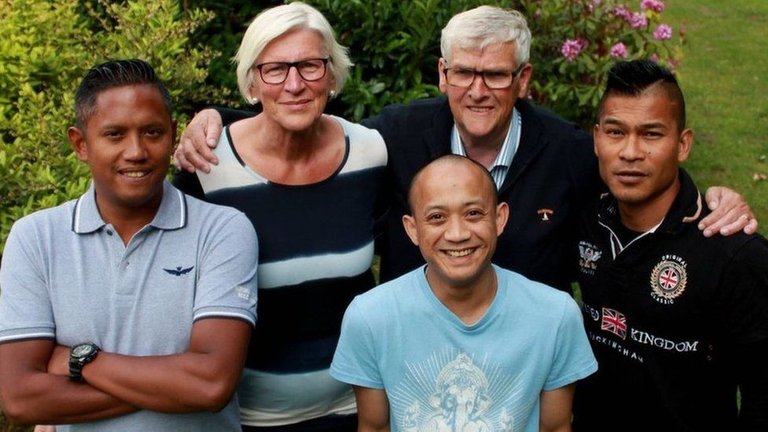
The search for children adopted by the Dutch
At the end of 2017, Andre heard news from his colleagues in the Netherlands who managed to meet with his biological parents in Indonesia. The incident made Andre back to search with the help of the Foundation Mijn Roots.
"I am 40 years old and I think people here do not live long, I think if I do not find them now, when again," explained Andre.
Armed with the adoption documents of his adoptive parents, the search for his biological family began.
"If the documents are not so clear, but we can get information from people who were then living with their parents, we feel confident to find that," explains Eko Murwantoro, the biological parents search team of the Mijn Roots Foundation.
To make sure Kartini was Andre's parents, the Mijn Roots Foundation did a DNA test and the results were positive.
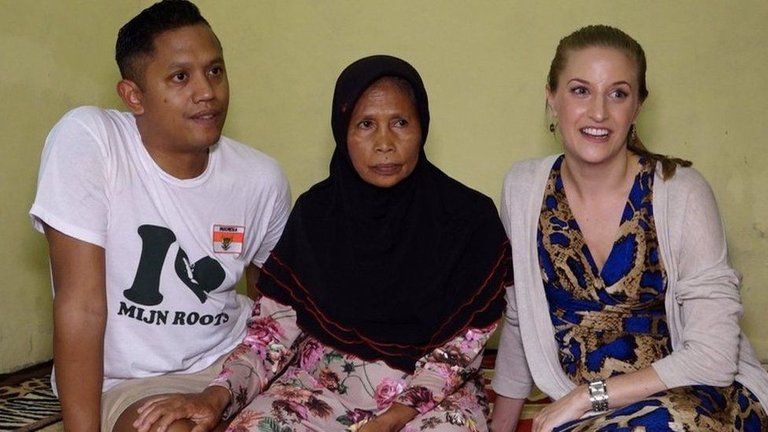

Andre is one of the 24 adopted children of Dutch citizens who managed to get back to their families through the help of Yayasan Mijn Roots.
"Someone is late did not find their parents, but managed to meet with his brother or sister, but still many who have not succeeded as well," said Eko.
The Mijn Roots Foundation was founded by Christine Verhaagen and Ana van Keulen three years ago to help adoption children find their biological parents. A few years ago Lucy Hommels joined the foundation.
The story of Ana found the biological parents
Christine Verhaagen and Ana van Keulen are also children adopted by the Dutch. Ana reunited with her biological parents Sati and Andung 24 years ago, when she was 18 years old.
From the age of 2.5 years, Ana was adopted by Jan and Gerda van Valen couples who lived in Sliedrecht near Rotterdam the Netherlands.
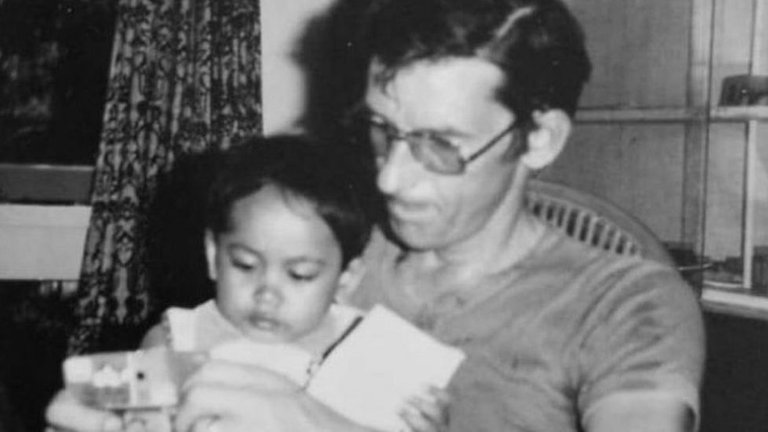

Since childhood Ana often ask about her biological parents, especially after the age of 12 years.
"I used to cry at that time, but my adoptive parents support and promise to bring it to Indonesia, and that happens when I'm 18 years old," Ana said.
At that time, Ana stayed in Bogor and asked the people around the inn where his mother originated in the Ipir Ciampea Sand village.
"It turned out that the village is not far from where I was staying, I finally went there and met my mother, then my father who lived in another village to get there too," said Ana.
From then on, Ana was still in touch with her mother and her real father until both of them died.
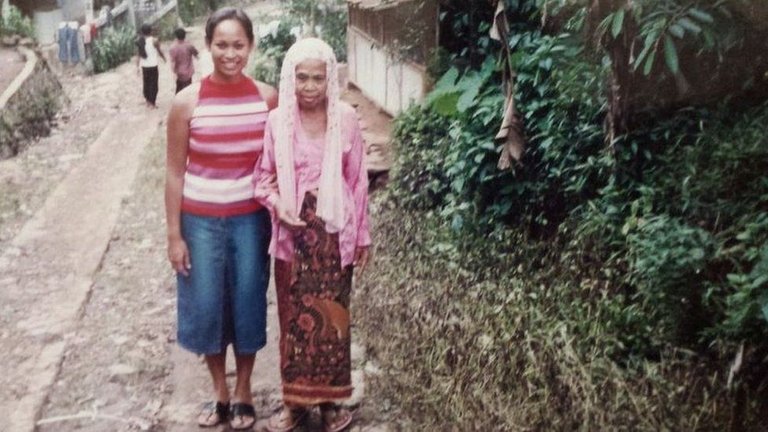
Ana, who stayed three years ago in Indonesia following her husband who works in Surabaya, East Java, was much asked by her fellow adopted children in the Netherlands who were looking for their biological parents.
"Initially looking for myself, it's hard also because of language problems, we finally established a foundation," said Ana.
While searching for her partner's parents, Ana has also experienced difficulties due to changes due to development and obscurity of parental identity.
"Many buildings have changed, witnesses have died, and many parents are not living in Jakarta," he said.
But sometimes, foster parents keep complete documents such as KTP parents who help search.
"In it we found his mother's ID card, his village, we went there, asked to RT and RW villages," explained Ana. Ana, who stayed three years ago in Indonesia following her husband who works in Surabaya, East Java, was much asked by her fellow adopted children in the Netherlands who were looking for their biological parents.
"Initially looking for myself, it's hard also because of language problems, we finally established a foundation," said Ana.
When looking for her partner's parents, Ana also experienced several difficulties due to changes due to development and obscurity of parental identity.
"Many buildings have changed, witnesses have died, and many parents are not living in Jakarta," he said.
But sometimes, foster parents keep complete documents such as KTP parents who help search.
"In it we found his mother's ID card, his village, we went there, asked to RT and RW villages," explained Ana.
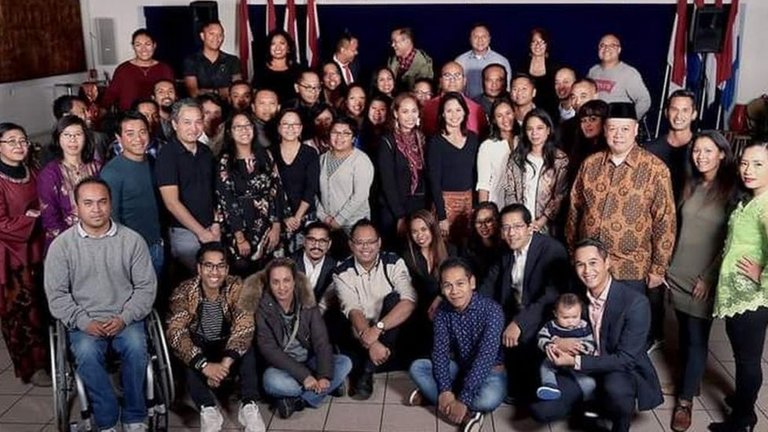
The search for biological parents is also done through local media, radio broadcasts, Facebook accounts 'Seeking Birth Parents' and the Mijn Roots Foundation network in various regions, but 'fake' adoption documents often make searching difficult.
"Sometimes the document is incorrect, the falsified name is hard to find, but if the document is true, we often find it in just a few days," he explained.
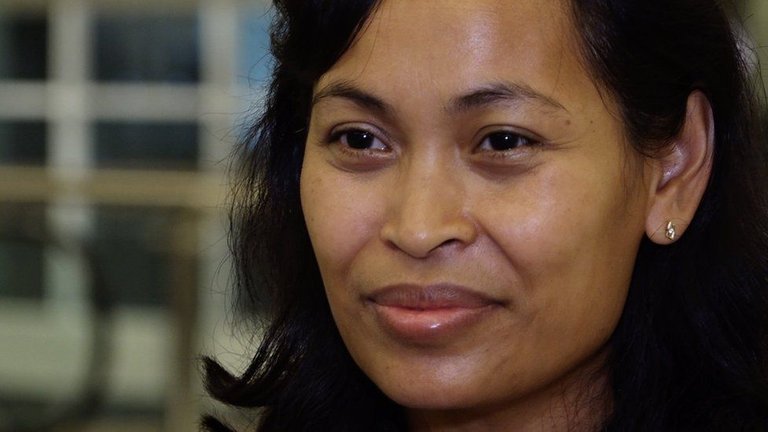
His fellow founder Mijn Roots Foundation, Christine, is also a child who was adopted by Dutch citizens, but has not found his biological parents.
Through various sources the Mijn Roots Foundation found about 3,000 Indonesian children adopted during the period 1974-1983, mostly by Dutch citizens, some by WN Sweden, France, Iceland, Germany and other European countries.
According to Ana, there are still many children who are trying to find parents or their biological family.
Photos and videos by Dwiki Marta, the documentation of Andre Kuik and Ana van Keulen.
The source of the story : http://www.bbc.com/indonesia/majalah-43940186?ocid=socialflow_facebook
itu kenapa ya intan
anak yang di adopsi oleh warga belanda 40 tahun lalu, bertemu dengan orang tua aslinya di indonesia
wow.., di daerah mana itu,
apakah di aceh
di jawa ideh, kon bak geutanyoe
0e pike bak tanyoe beunoe
bek tuwoe jak bak post loen beuh
So touching! No matter how tall a tree grows, it should never forget it's root. It's so good to have them all re-establish connections with their lost families.